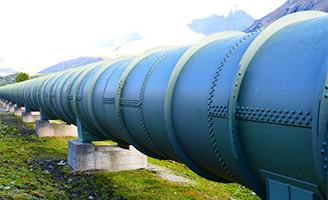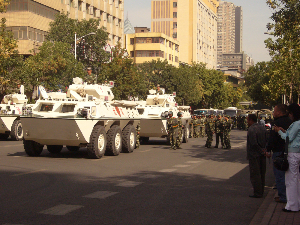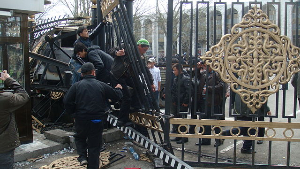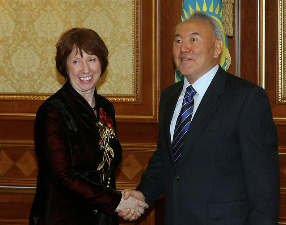Turkmenistan Poised for TAPI Breakthrough
By Micha’el Tanchum (03/18/2015 issue of the CACI Analyst)
With the drastic reduction and imminent cessation of Russian imports of natural gas from Turkmenistan, China has become Turkmenistan’s sole export market. While welcoming economic cooperation with China, Ashgabat has been working assiduously to avoid undue economic dependence on Beijing. The Turkmen government’s new determination to diversify the markets for its natural gas seems to have provided Ashgabat with the motivation to make key concessions for the construction of the Turkmenistan-Afghanistan-Pakistan-India (TAPI) pipeline. By creating the first significant overland link with India, the TAPI pipeline project will not only diversify Turkmenistan’s gas exports but will permanently alter the pattern of Central Asian connectivity.

China's Role in Stabilizing Afghanistan
By Sudha Ramachandran (01/22/2015 issue of the CACI Analyst)
Afghanistan’s President Ashraf Ghani’s recent visit to Beijing was an important milestone in Sino-Afghan relations as it marked the start of China’s enhanced role in Afghanistan, especially as a peacemaker in the war-ravaged country. While Beijing’s close ties with Pakistan will come in handy in dealing with the Taliban, the road to building stability in Afghanistan is littered with landmines. Can Beijing succeed where mightier powers such as the Soviet Union and the United States did not?

China's Silk Roads and Their Challenges
By Stephen Blank (01/07/2015 issue of the CACI Analyst)
Few realize that China is actually building three Silk Roads, one through Central Asia to Europe; a second, maritime one, through South East Asia to India and South Asia; and third, China is building a robust commercial network through the Arctic to connect it with Europe. In all three cases there is a common geopolitical dream that has been shared by Russian and Asian leaders since the opening of the Suez Canal: building a land-based alternative connecting East, South, and Central Asia to Europe by purely terrestrial means. China’s plans for Central Asia are extraordinarily ambitious but there are serious problems that could undermine them.

Kyrgyzstan's Interactive Crises and Their Broader Implications
By Stephen Blank (11/11/2014 issue of the CACI Analyst)
Kyrgyzstan is considered the least authoritarian state in Central Asia, but it is also the most crisis-ridden and least stable of these states. Its long-standing domestic weaknesses are compounded by its external crises and only Ukraine has achieved a similar level of instability among post-Soviet states. In both cases, recent revolts have been aided by direct Russian hands-on efforts at destabilization. Kyrgyzstan risks a turbulent 2015 as it faces a decline in Russian subsidies amid pressure to join the Eurasian Economic Union (EEU), along with the interaction of several ethnic, economic, border, and international crises, which Kyrgyzstan’s weakening state will unlikely be able to handle.

Reaffirming Balance: Kazakhstan's Expanded Foreign Policy Strategy and its Response
By S. Frederick Starr (10/29/2014 issue of the CACI Analyst)
Kazakhstan may have not had a choice as to whether or not to join the Customs Union, given geographical realities and President Nazarbayev’s long advocacy of that course. Now that it is joining, however, Kazakhstan has advanced a new strategy that seeks to rescue and preserve its “balanced” or “multi-vectored” foreign policy and to extend it beyond geopolitics into economics and security. This requires the full engagement of the EU and U.S. The EU’s October 2014, Enhanced Partnership and Cooperation Agreement with Kazakhstan advances this goal in the economic realm, but does not touch security. The U.S. has yet to take make similar advances in its economic or security relations with Kazakhstan.







